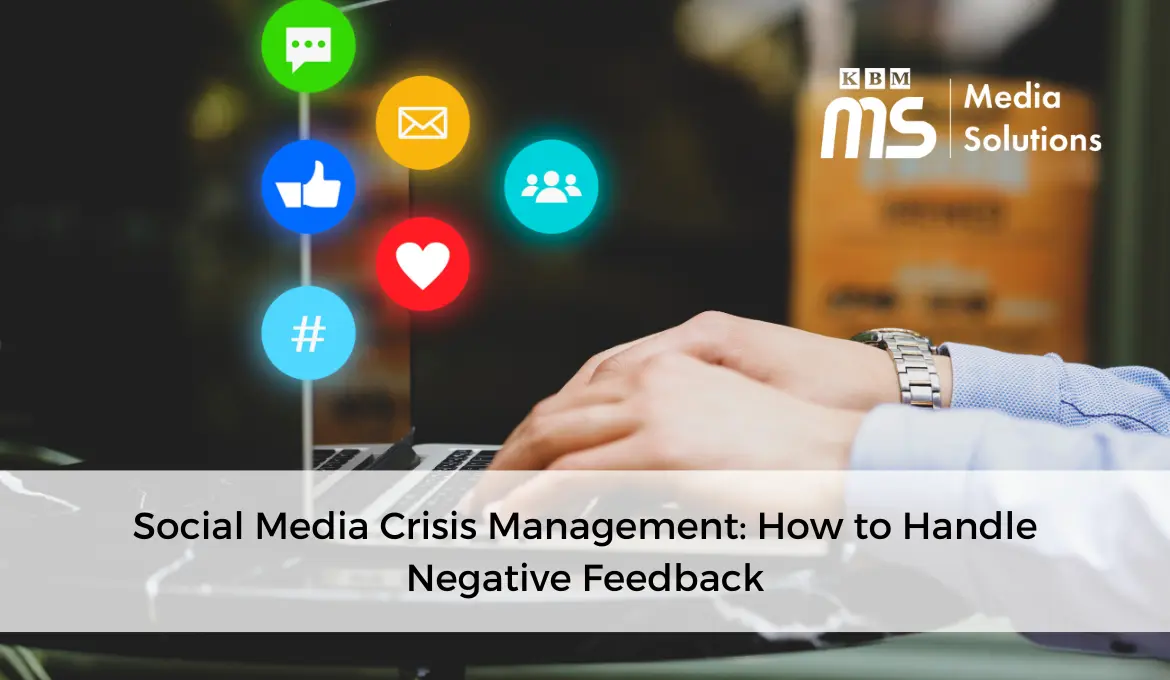Social Media Crisis Management: How to Manage Negative Feedback

Posted on Dec 10, 2023
In the age of digital connectivity, social media has evolved as a powerful tool for businesses to engage with their audience. It offers a platform for marketing, customer service, and brand promotion.
However, with the benefits come challenges, and one significant challenge is handling negative feedback and crises on social media.
This guide will explore the importance of managing negative feedback and sharing strategies for effectively addressing concerns.
Managing Social Media Negative Feedback Significance
Negative feedback on social media can significantly impact your brand's reputation. Here's why working it is crucial:
- Immediate and Widespread Impact: Social media allows information to spread rapidly. Negative feedback can go viral, reaching thousands or millions of people within minutes. Unaddressed issues can escalate quickly.
- Customer Expectations: In this digital age, customers expect prompt responses. Ignoring negative feedback can lead to the perception that your brand doesn't care about its customers, which can harm your reputation.
- Brand Image: How you handle negative feedback reflects your brand's image. If taken well, it can showcase your commitment to customer satisfaction and problem resolution.
- Learning Opportunity: Negative feedback often contains valuable insights. It can highlight areas where your products, services, or customer support need improvement. Embracing this feedback can lead to positive changes in your business.
Strategies for Effective Social Media Crisis Management
Now that we understand why managing negative feedback is vital let's explore strategies for effectively handling social media crises:
- Monitor Social Media Platforms: The initial step in effective crisis management is to be aware of what's happening on your social media platforms—utilise social media monitoring tools to track brand mentions, comments, and messages.
- Respond Promptly: Respond to negative feedback promptly. Acknowledge the issue and express your commitment to resolving it. A quick response shows you're taking the matter seriously, even if you have yet to get an immediate solution.
- Take Conversations Offline: For more complex issues, invite the customer to continue the conversation privately. This avoids prolonged public discussions and shows your commitment to resolving the problem.
- Stay Calm and Professional: Negative feedback can be emotional. It's crucial to respond calmly and professionally, even if the feedback is aggressive. Avoid arguing or engaging in confrontations.
- Offer Solutions: In your responses, provide potential solutions or steps to address the problem. Customers appreciate knowing their concerns are being addressed.
- Use Humour Wisely: Humour can sometimes defuse tension, but it must be employed carefully. What one person finds funny, another may not. If in doubt, it's safer to maintain a serious tone.
- Follow-Up: After resolving an issue, follow up with the customer to ensure they're satisfied with the resolution. This demonstrates your commitment to customer service.
- Develop a Crisis Management Plan: Develop a comprehensive crisis management plan outlining various crisis procedures. Assign roles and tasks to your team, and ensure everyone is trained in crisis management.
- Learn from Each Crisis: After each crisis, conduct a post-mortem analysis. Identify what went well and where improvements can be made. This learning process will make your crisis management more effective over time.
Conclusion
Negative feedback and social media crises are challenges that businesses must address in today's digital landscape. You can effectively manage crises and maintain your brand's reputation by promptly responding to negative feedback, staying professional, offering solutions, and taking conversations offline when needed.
Remember, each crisis is an opportunity to learn and improve, ensuring your brand's social media presence remains positive and resilient.